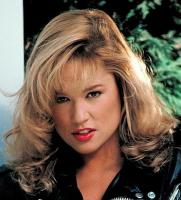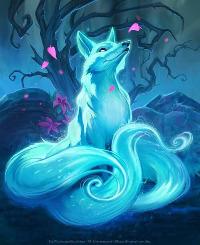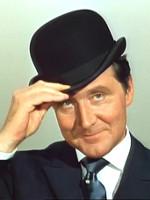×
Please remember that experience is relative. Just because you aren't a completely new author doesn't convey a right to throw around the weight of your experience as if you are Stephen King, Jim Butcher, or Brandon Sanderson. Unless you ARE Stephen King, Jim Butcher, or Brandon Sanderson... in which case, go for it. 
Posting rules: Any registered member can create or reply to a thread.
Posting rules: Any registered member can create or reply to a thread.
Question Story mapping
9 years 1 week ago #1
by Warren
Posts:
272
Gender:
Male
Birthdate:
15 Oct 1963
Don't push the on-button if you don't know where the off-button is. -- Solomon Short
- Warren
-
 Topic Author
Topic Author
In the pas I've spent a lot of time exploring tools available for writers. One of my biggest problems was staying on track as I write. Other ideas would come up all the time and distract me from working on the story at hand. That is until I found the screenwriting tools at
http://www.freefilmsoftware.co.uk
Specifically the program S Lang 2 Which is a screen writing tool very much like a stack of 3x5 cards to organize story ideas.
Not only can you sort and arrange scenes of your stories, You can place conditions on a scene to determine if it will pop up or not. It's great for those times you get distracted on another thread and might actually let you use something you already wrote later in your story. I use it mostly so I can rough out the story I'm writing quickly and prevents me from asking the killer question "What now?" when I"m 30 pages deep in a story and faced with a lot of ideas. Give it a shot. It's free!
Not only can you sort and arrange scenes of your stories, You can place conditions on a scene to determine if it will pop up or not. It's great for those times you get distracted on another thread and might actually let you use something you already wrote later in your story. I use it mostly so I can rough out the story I'm writing quickly and prevents me from asking the killer question "What now?" when I"m 30 pages deep in a story and faced with a lot of ideas. Give it a shot. It's free!
Don't push the on-button if you don't know where the off-button is. -- Solomon Short
9 years 1 week ago #2
by rubberjohn
Posts:
113
Gender:
Unknown
Birthdate:
Unknown
- rubberjohn
-

I remember reading a piece in which Piers Anthony explained how he went about his writing ( I think it might have been in the Afterword of one of his books).
He mentioned how, before he started using a computer/word processor he would write the first draft of a story in pencil and whenever an idea that had nothing to do with the story he was writing cropped up he would jot the idea down inside a set of brackets before resuming where he left off.
Later, when he worked on the second draft he would take all the bracketed ideas and note them on a separate sheet for later use. Once he switched to using a computer he was able to use a similar system with added advantage of his being able to run a search to find and extract all the bracketed much more quickly. He claimed that his system allowed him to avoid the dreaded writers block.
This computer program you mention sounds as though it allows a writer to work in a very similar way.
John.
He mentioned how, before he started using a computer/word processor he would write the first draft of a story in pencil and whenever an idea that had nothing to do with the story he was writing cropped up he would jot the idea down inside a set of brackets before resuming where he left off.
Later, when he worked on the second draft he would take all the bracketed ideas and note them on a separate sheet for later use. Once he switched to using a computer he was able to use a similar system with added advantage of his being able to run a search to find and extract all the bracketed much more quickly. He claimed that his system allowed him to avoid the dreaded writers block.
This computer program you mention sounds as though it allows a writer to work in a very similar way.
John.
8 years 11 months ago #3
by Nuuan
Posts:
46
Gender:
Unknown
Birthdate:
Unknown
- Nuuan
-

In some of the college course I took (so many years ago my children asked me how we wrote on stone tablets back then) we were taught several techniques. The 3x5 index cards and a cork board was a technique called storyboarding. It does work great, although today there are many comuterized versions. I personally use Scriviner, it has tons of features including storyboarding that work great, it cost around $40 US and has a free 30 day trial. A free alternative of this program is Ywriter, while I have never used it I have heard that some like it better than Scriviner.
The great part of programs such as these is the fact that ALL your material for a story is kept within one program and all within the story project it is used in. Making it virturally impossible to lose a note you made or a picture you saved, etc for that story. When you open the story all your stuff is there.
The great part of programs such as these is the fact that ALL your material for a story is kept within one program and all within the story project it is used in. Making it virturally impossible to lose a note you made or a picture you saved, etc for that story. When you open the story all your stuff is there.
8 years 11 months ago #4
by Warren
Posts:
272
Gender:
Male
Birthdate:
15 Oct 1963
Don't push the on-button if you don't know where the off-button is. -- Solomon Short
- Warren
-
 Topic Author
Topic Author
Slang is similar to those but not so much back end. It doesn't have the character background stuff that the pay software does. I can't complain about it since it's free. The only crippling it has is that the program opens a web page advertising the pay version of the program when you close the one you're using.
Don't push the on-button if you don't know where the off-button is. -- Solomon Short
8 years 11 months ago #5
by FiddlerFox
Posts:
163
Gender:
Male
Birthdate:
10 Apr 1980
"Uh-oh." "Don't tell me - we're about to go over a huge waterfall." "Yup." "Sharp rocks at the bottom?" "Most likely." "Bring it on."
BBOOOOOOOOYYAAAAAAAAAAHHHHHH!
- FiddlerFox
-

I was just in a panel last weekend at Anglicon with Todd McCaffrey on World Building and one of the big takeaways for me was "Outline, outline, outline!" Like, formally outline and write it all down. So when you're on book 5 or 6 it's tying in still to book 1. He also stressed building your "World Bible" and having all those hard notes on descriptions and things in one place so you can have internal continuity with your own work. He also hit some neat points on what was the real character of the story: the character, the setting itself, or the idea you're exploring, but really the outline I think is what ties in here with the Story mapping idea.
"Uh-oh." "Don't tell me - we're about to go over a huge waterfall." "Yup." "Sharp rocks at the bottom?" "Most likely." "Bring it on."
BBOOOOOOOOYYAAAAAAAAAAHHHHHH!
8 years 11 months ago #6
by Nuuan
Posts:
46
Gender:
Unknown
Birthdate:
Unknown
Outlines are important, but they are not the end all solution for every author. Also there are various styles of outlining along with how detailed or vague the author creates it. It all depends on the style of writing used. A discovery writer often finds a detailed outline too constricting to use, so these types of authors may only use a list of major plot points and the order those plot points occur in the story as their outline.
Story mapping or story boarding as I have always heard it called, is a way of displaying your story's outline that allows you the flexibility to rearrange parts of your story if necessary. A storyboard is really nothing more than another way of creating and displaying an outline. In the days before computers and everything was on paper, creating your outline on 3x5 index cards and pinning those to a corkboard allowed you to move the scenes around, where as if everything was typed out on paper, the only way to move a scene was to retype to entire page of the outline.
- Nuuan
-

FiddlerFox wrote: I was just in a panel last weekend at Anglicon with Todd McCaffrey on World Building and one of the big takeaways for me was "Outline, outline, outline!" Like, formally outline and write it all down. So when you're on book 5 or 6 it's tying in still to book 1. He also stressed building your "World Bible" and having all those hard notes on descriptions and things in one place so you can have internal continuity with your own work. He also hit some neat points on what was the real character of the story: the character, the setting itself, or the idea you're exploring, but really the outline I think is what ties in here with the Story mapping idea.
Outlines are important, but they are not the end all solution for every author. Also there are various styles of outlining along with how detailed or vague the author creates it. It all depends on the style of writing used. A discovery writer often finds a detailed outline too constricting to use, so these types of authors may only use a list of major plot points and the order those plot points occur in the story as their outline.
Story mapping or story boarding as I have always heard it called, is a way of displaying your story's outline that allows you the flexibility to rearrange parts of your story if necessary. A storyboard is really nothing more than another way of creating and displaying an outline. In the days before computers and everything was on paper, creating your outline on 3x5 index cards and pinning those to a corkboard allowed you to move the scenes around, where as if everything was typed out on paper, the only way to move a scene was to retype to entire page of the outline.
8 years 11 months ago #7
by Sir Lee
Posts:
3113
Gender:
Male
Birthdate:
08 Nov 1966
- Sir Lee
-

Just to clear up a point... there's a different meaning to "storyboard" as used in Hollywood. In the Hollywood sense, storyboards are illustrations, sort of like a comic-book (and sometimes done by a comic-book artist) used to plan the camera angles and such.
Don't call me "Shirley." You will surely make me surly.
8 years 11 months ago #8
by FiddlerFox
Posts:
163
Gender:
Male
Birthdate:
10 Apr 1980
"Uh-oh." "Don't tell me - we're about to go over a huge waterfall." "Yup." "Sharp rocks at the bottom?" "Most likely." "Bring it on."
BBOOOOOOOOYYAAAAAAAAAAHHHHHH!
- FiddlerFox
-

It makes complete sense that some authors would work in a different fashion. I just wanted to relate something that I was fortunate enough to hear from a small workshop I was in taught by what I would call a relatively successful author. Spread the knowledge so to speak.
I think the exact method one uses to outline isn't as important as doing some sort of outline or plan. Plan it out. Write that plan down somehow. When you're two thirds or three quarters of the way in, having a plan helps you from meandering or deviating too far from it. It keeps your work tied together and consistent.
If you want to do a plan on a computer, in a journal or workbook, in cards that you can move around... I don't think the method is as important as having a plan.
Now discovery writing is something I don't have experience with or any real knowledge of, besides I know that it does not really work for me. Sometimes there'll be a minor detail or quirk of a character that seems to write itself, but I'm not one of the people who can put a pencil to paper and have stuff flow out on it's own, so I can't speak to it at all.
I think the exact method one uses to outline isn't as important as doing some sort of outline or plan. Plan it out. Write that plan down somehow. When you're two thirds or three quarters of the way in, having a plan helps you from meandering or deviating too far from it. It keeps your work tied together and consistent.
If you want to do a plan on a computer, in a journal or workbook, in cards that you can move around... I don't think the method is as important as having a plan.
Now discovery writing is something I don't have experience with or any real knowledge of, besides I know that it does not really work for me. Sometimes there'll be a minor detail or quirk of a character that seems to write itself, but I'm not one of the people who can put a pencil to paper and have stuff flow out on it's own, so I can't speak to it at all.
"Uh-oh." "Don't tell me - we're about to go over a huge waterfall." "Yup." "Sharp rocks at the bottom?" "Most likely." "Bring it on."
BBOOOOOOOOYYAAAAAAAAAAHHHHHH!
Moderators: WhateleyAdmin, Kristin Darken, E. E. Nalley, elrodw, Nagrij, MageOhki, Astrodragon, NeoMagus, Warren, Morpheus, Wasamon, sleethr, OtherEric, Bek D Corbin, MaLAguA, Souffle Girl, Phoenix Spiritus, Starwolf, DanZilla, Katie_Lyn, Maggie Finson, DrBender, JG, Bladedancer, Renae_Whateley

